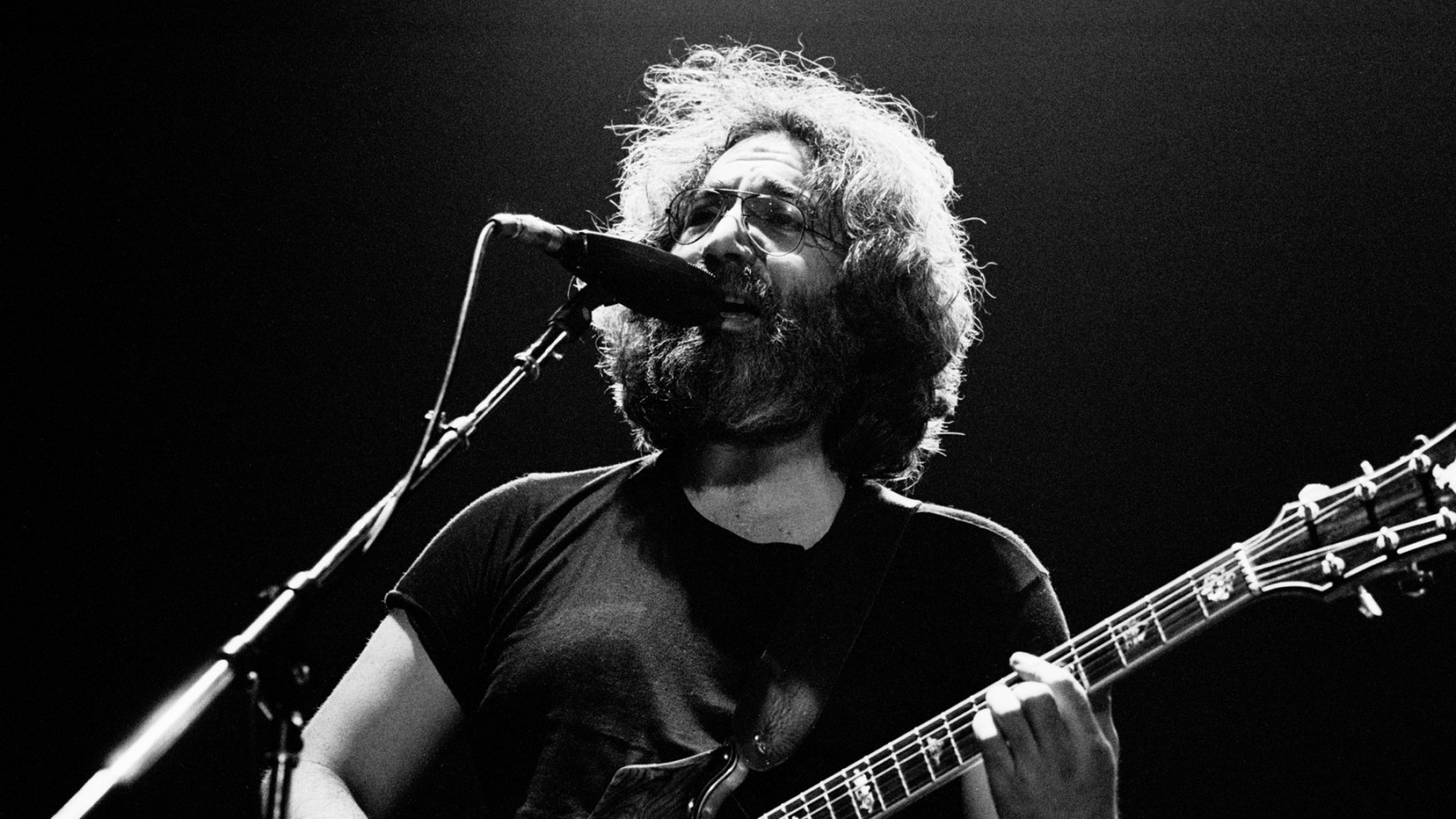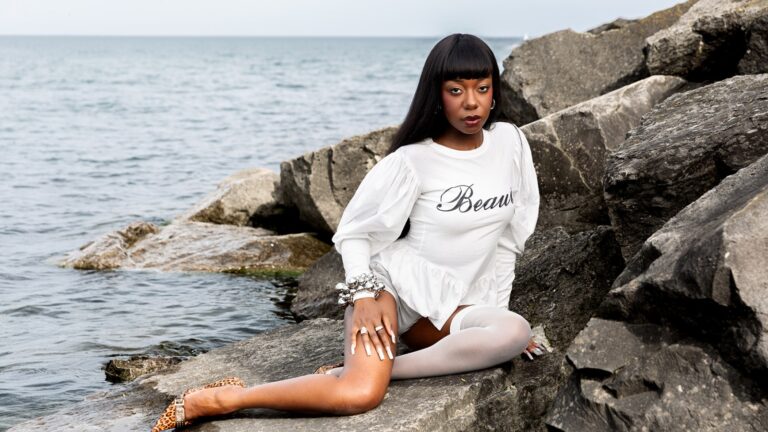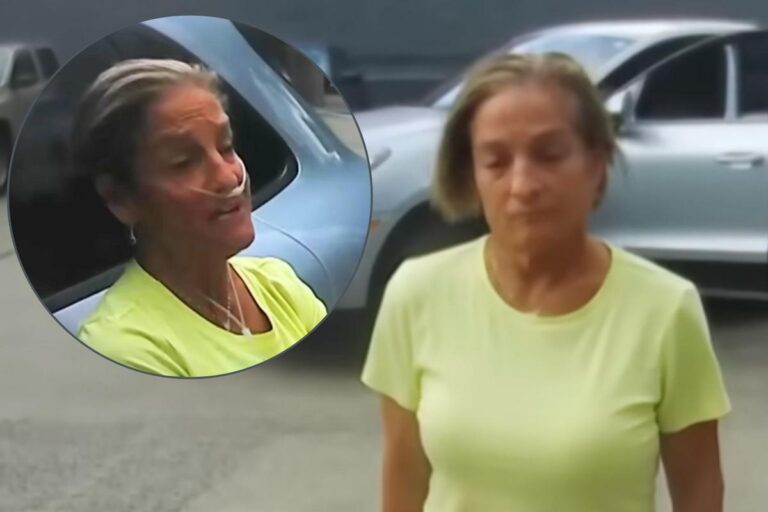The jam band scene – long reigned over by groups like the Grateful Dead and the Allman Brothers Band – exploded in the Nineties as newer artists like Phish and Widespread Panic began filling arenas and fomenting their own rabid vagabonding fanbases.
A new book by rock journalist Mike Ayers, Sharing in the Groove: The Untold Story of the ’90s Jam Band Explosion and the Scene That Followed, digs into the roots of the movement, straight from the mouths of those who experienced and shepherded the genre’s resurgence, including Phish’s Trey Anastasio, Blues Traveler’s John Popper, Warren Haynes, Derek Trucks, and many more.
In this exclusive excerpt from Ayers’ oral history, Anastasio and others reflect on one of the darkest days in jam music history, August 9, 1995, the day the Dead’s Jerry Garcia died, and how that death impacted the scene:
Pete Shapiro (Owner, Wetlands): Jerry died in August ’95. I remember going to Central Park— Strawberry Fields, just to see. And I remember right away being like, “Fuck, these people are not gonna go away.”
Dave Schools (Bass, vocals, Widespread Panic): I had been to the dentist. And I was all sort of numbed out and I was walking down the street. I went to our office, which was across the street from the Georgia Theatre. And our office assistant, Mary Armstrong, looks at me: “Oh my god, I’ve got terrible news. Did you hear about Jerry? He passed away.” And my first thought was Jerry Joseph, the bad boy that I knew that we were close to. She’s like, “No, no, Jerry Garcia.” I had just seen the show the spring before in Vegas. I had actually stood on stage with Chris Robinson and watched the show.
I was shocked and heartbroken. But I wasn’t that big of a fan of the Vince era; I was a big Brent Mydland fan. Almost every single show I ever saw was during the Brent era, including that famous “Dark Star” from RFK Stadium in 1990. Who’s got the balls to play in front of forty thousand people a forty- five-minute improv with a drum solo in the pouring rain! Those guys do. It really struck me and I couldn’t listen to a lot of Grateful Dead for a long time after that. And for some reason, the song that really got me was “Crazy Fingers.” That was really hard for me to listen to.
Dean Budnick (Founder, Jambands.com): The Dead scene was deteriorating at that time. And the music—I don’t think anyone will dispute that in 1995 the music wasn’t what it once was.
John Bell (Guitar, vocals, Widespread Panic: I remember being sad. Jerry Garcia was a big inspiration on me experiencing improvisational rock and roll. He sang Robert Hunter’s lyrics with such sincerity.
Oteil Burbridge (Bass, Aquarium Rescue Unit): The Grateful Dead was not huge on my radar at that time. But a lot of the people that I knew, people that were fans of ARU, I remember them just being crushed. It was terrible.
Chan Kinchla (Guitar, Blues Traveler): Obviously, he was a very important figure for all of us. But the scene was off and running. We had opened up for the Jerry Garcia Band. But us, Phish, and Widespread and a lot of bands similar to us, like Aquarium Rescue Unit… we were already trying to carry that torch. Perhaps more Phish and Widespread—they were more of the Dead perspective. We were a little more like Jimi Hendrix and Led Zeppelin with some Dead influences. But I think when the Grateful Dead disappeared, that did leave a hole that a lot of jam band fans looked for.
Dean Budnick: There were bands that were anointed after that. There was no question that people would have more time and energy. I do think it opened something up. Unquestionably Jerry’s passing contributed to it . . . I don’t want to overstate it because it was already in motion.
Jon “The Barber” Gutwillig (Guitar, vocals, The Disco Biscuits): It definitely made Phish huge, there’s no question about that.
Dirk Stalnecker (Production Assistant, Blues Traveler; Tour Manager, Widespread Panic): Phish took the brunt of that, which really put a lot of pressure on them with the parking lot scenes.
Jon Topper (Manager, moe.): Some people were obviously looking towards Phish.
Trey Anastasio (Guitar, vocals, Phish): Just for the record, we have to remember that we were already selling out the Garden before Jerry died. We were cooking with gas.
Pete Shapiro: Jerry’s death led to, in a weird way, the further development of the jam band scene.
Trey Anastasio: That was a tricky landscape to navigate. It was really kinda confusing. We were out there with lots of other bands, including the Dead. They were playing. We were playing. We had a completely original song list— “Maze,” “Split Open and Melt, “It’s Ice.” It doesn’t sound like anything you’ve ever heard before. We thought we were completely in our own realm. And we were. We didn’t just think it. We actually were. It’s true—“It’s Ice” does not sound like any other band. We were fucking proud of it. We would walk off and be like, “There’s nobody doing this right now. Nobody.” That’s how we felt. So after Jerry died, when that element was like, “Well, we’ll just move over to Phish,” it’s like, “Well, you’re not gonna like it dude.”
Courtesy of St. Martin’s Press
Vince Herman (Guitar, vocals, Leftover Salmon): We were at Barley’s in Asheville, North Carolina, when the word came. It was an intense moment for sure. The impact of the Dead on our culture . . . you can’t emphasize enough.
John Moore (Tour Marketing and A&R, Mammoth Records): I think Garcia going sped things up. Fans wanted to see as much music, of course.
Tye North (Bass, Leftover Salmon 1993-2000): When Jerry died, that changed a lot. People had to find a place to go and bands around benefited.
John Popper (Vocals, harmonica, Blues Traveler): Bobby looked at me and said, “I don’t want to capitalize on this.”
Dave Frey (Manager, Blues Traveler): We got the Black Crowes and Ziggy Marley and Sheryl Crow for H.O.R.D.E. ’95. We get to Portland, Maine, and we’ve got a day off. And on that day off Jerry Garcia dies. I got a call from the promoter: “I need help. Can you give bodies to me?” So I got people up there, including myself. We helped sell tickets all day. And it sold out. All these people that were going to Dead shows came to H.O.R.D.E. Where we were going at twelve thousand tickets the day before we sold out at twenty thousand. And there were more that couldn’t get in. And I told the promoter: “Just let these people in because they’re gonna break your fence. They’re coming in, whether you let them in or not.” So suddenly, we’ve got a whole new set of issues—we’re completely sold out everywhere we go. Deadheads just needed something else, you know, that’s the closest thing to it. Same thing happened to Phish. And bang, the rest of their tour sold out. I think they got more of the criminal parking-lot elements.
John Popper: We were torn because us, Phish, and Widespread were the big touring bands out there. And it made sales go through the roof because everybody who was on tour with the Dead needed to go somewhere.
Dave Frey: All the numbers were exploding.
John Popper: We felt guilty about it.
Dave Frey: And we had a whole new set of problems. We didn’t have enough comp tickets for people because we hadn’t held tickets. Security and working with police on how do you mitigate people showing up who can’t get in? You always have problems. You just hope you have good ones to have.
Pete Shapiro: I did see there would be a healthy scene post-Jerry of people who wanted to dance for three or four hours.
Dean Budnick: There were already younger people who were drawn to those bands who may or may not have been Deadheads. But certainly those acts got a little bit more attention, which probably did help them.
Trey Anastasio: In ’93 or ’94, I walked offstage with pride. When Jerry died, there was a lot of that “Let’s go over here.” Well, this isn’t what we want. I don’t go to a Cranberries concert and expect them to play like King Sunny Adé.
Warren Haynes (Guitar, vocals, The Allman Brothers Band, Gov’t Mule): We played Jones Beach. And it was obviously a really sad, somber day. It’s got that big, enormous backstage area. I remember getting there early and some of the guys in the Black Crowes were gonna come in. I remember seeing Chris Robinson walking across the backstage area—he was normally an upbeat, energetic person, and just the look on his face being so sad and subdued . . . we hugged each other. And there wasn’t much to say. We dedicated the show to Jerry that night. And I think there were a lot of magical moments that came out of that sadness that everybody was feeling. When I got home that night, I wrote “Patchwork Quilt,” which was the song that I’d written about Jerry that stemmed from that whole thing.
Derek Trucks (Guitar, Derek Trucks Band, The Allman Brothers Band): Obviously, I knew who they were and was familiar with it, but it wasn’t where my head was. But I remember how seismic that feeling was to everyone around me.
Warren Haynes: I never did meet Jerry. And of course, the opening line to “Patchwork Quilt” is, “I never knew you, but then who really did.” I had three opportunities to meet him. And each time, I was like, “I’ll meet him next time. I don’t want to be in the way.” And it was a valuable lesson to me, because there wasn’t a next time.
Dean Budnick: The day that Jerry passed, I was at that Bob Weir show that took place up in New Hampshire. The Hampton Casino is a big GA place. I was sitting on a chair, towards the back of the room, but when I stood on the chair I was about the same height, eye-contact wise, as Bobby. I remember a lot of that night I was locked with him. You could really see what he was going through, and why he was there and what he felt he needed to do. I wouldn’t say that the music itself was the most profound that I’ve ever heard relative to RatDog. But the night was unbelievably deep. I do believe Jerry would have wanted that . . . that that’s what music is for, to draw people together in that day of deep sadness. Between songs, I’ll say that people were respectful. People weren’t calling out “Jerry!” Everyone was there to be with Bob and to listen to Bob.
Shelly Culbertson (Internet and Ticketing Manager, Phish): I don’t know if I would say there was a big influx of fans. Before then and after, there are the Deadheads who liked Phish, Deadheads who didn’t care for Phish, the Phishheads who liked the Dead, the Phishheads who weren’t into the Dead. The fact that unfortunately Jerry passed . . . that didn’t really change people’s tastes in music. It might have given them more free time and disposable in- come, depending on who they were following.
Jon “The Barber” Gutwillig: I think that the Dead are a unique Americana experience. You got Michael Jackson, Madonna, and Jerry Garcia . . . there’s very few artists that I think were on his level.
Pete Shapiro: Jerry’s death led to the super growth . . . you can go to any of these bands and there’s a similarity to how they approach the music and how certain people want to experience live music.
Marc Brownstein (Bass, vocals, The Disco Biscuits): Is there anybody more influential than the Dead on music in America?
Trey Anastasio: Nobody ever is gonna sound like Jerry Garcia.
Excerpt from Sharing in the Groove: The Untold Story of the ’90s Jam Band Explosion and the Scene That Followed by Mike Ayers © 2025 by the author and reprinted by permission of St. Martin’s Press



